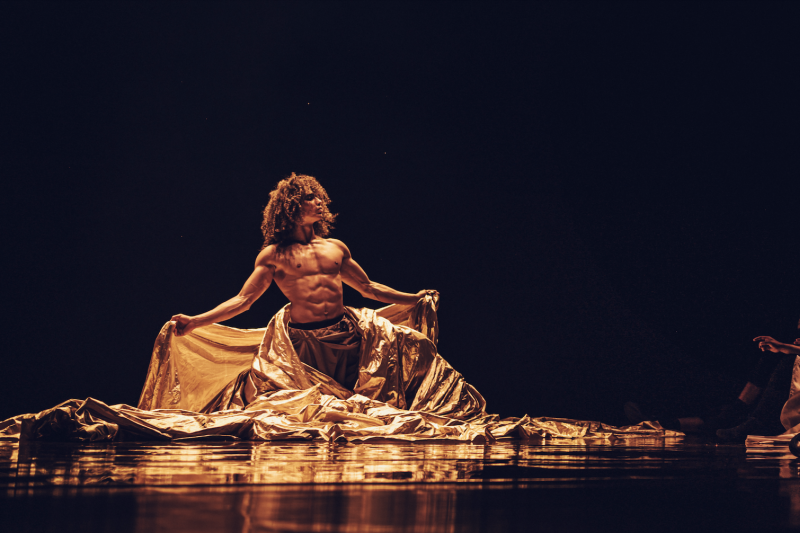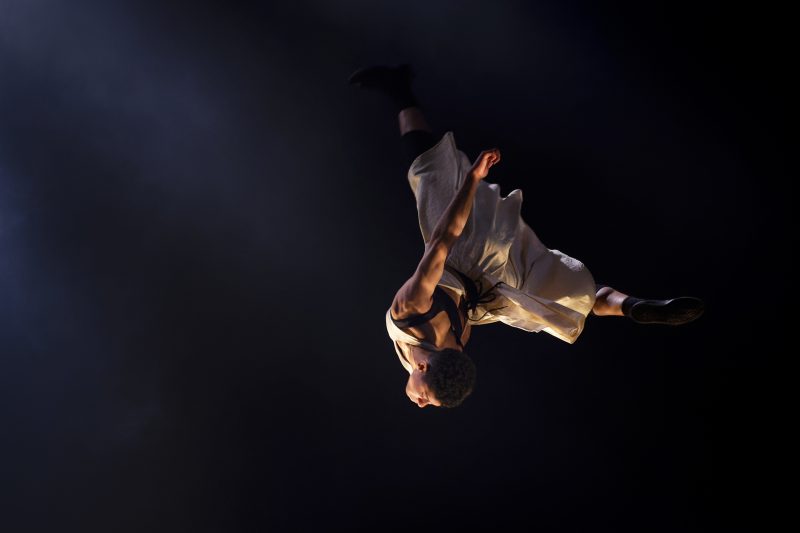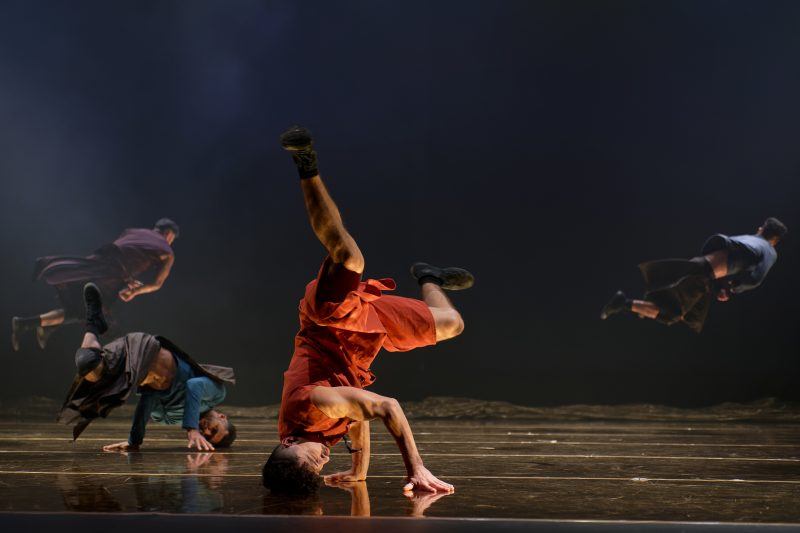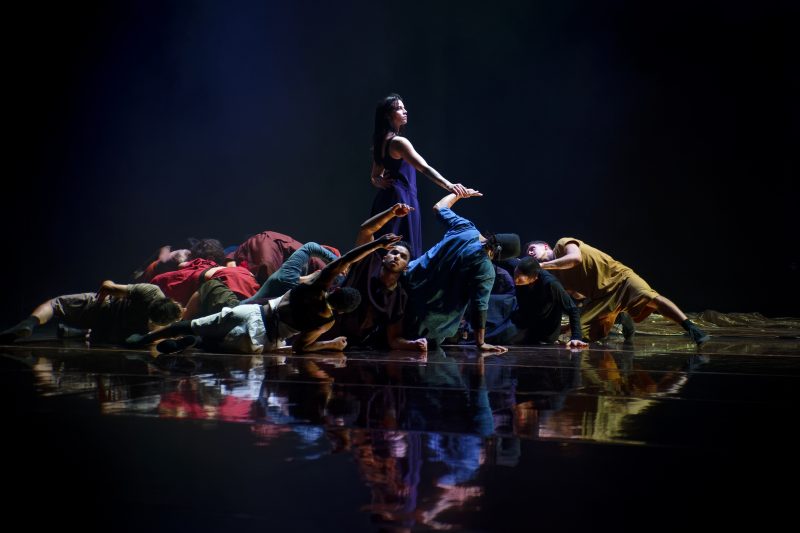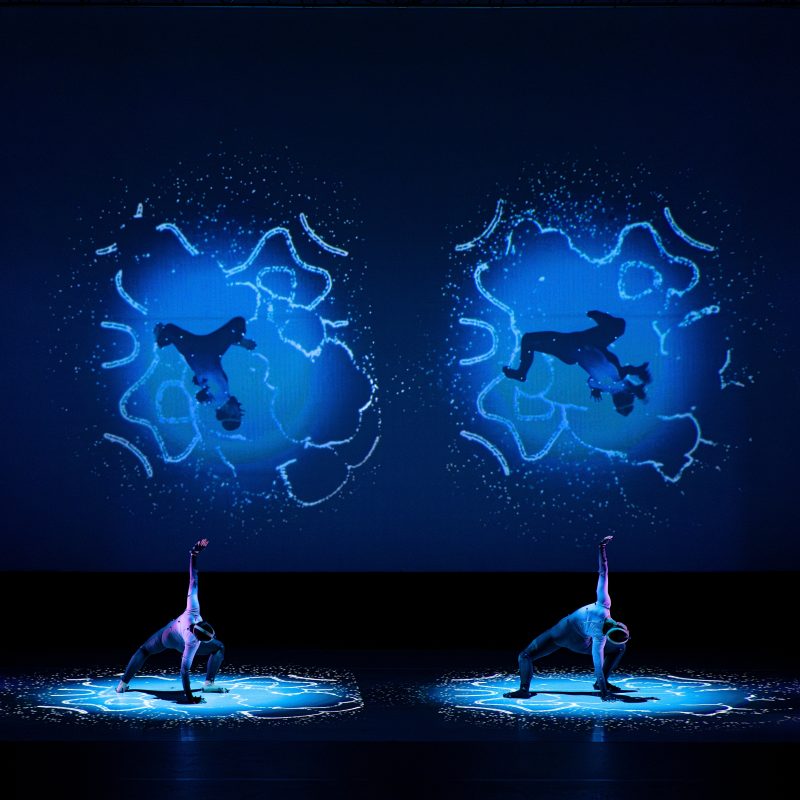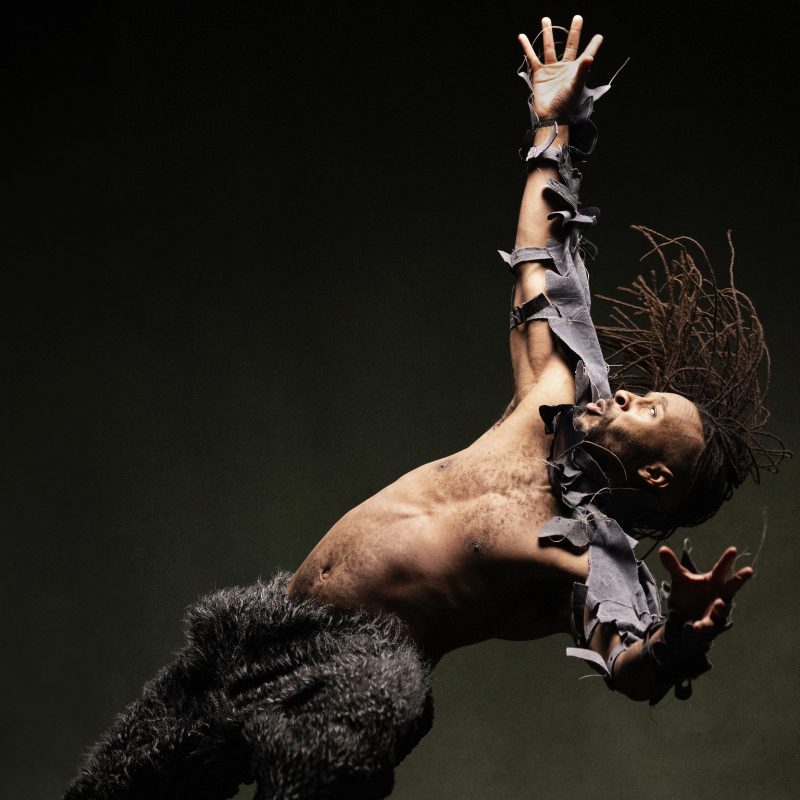One of the major surprises of the Holland Dance Festival 2020 was the virtuoso Ce que le jour doit à la nuit, the Dutch debut of the French-Algerian choreographer Hervé Koubi which stunned the audiences. While Koubi's personal exploration of his Algerian roots served as the foundation for this overwhelming men-only choreography, in his latest production, Sol Invictus, he tackles more universal themes. Sol Invictus stands as a fervent ode to the unifying power of dance, set against the insignificance of our human existence. For this new work, Koubi once again curated a group of exceptionally talented dancers, sourced party through social media, creating a diverse ensemble with varied backgrounds, appearances, and skills, originating from all corners of the globe. This eclectic mix includes hip-hoppers, battle champions, but also dancers who have developed their own training and routines in the Amazon region or Siberia.
Fascination with the cosmos
In Sol Invictus, the fifteen dancers operate as a tight-knit collective, emphasizing shared responsibility for each other alongside personal accountability. Koubi intentionally eschews counting in his choreography, fostering heightened focus among the dancers on one another. While initially mysterious, Koubi later revealed his inspirations for Sol Invictus, rooted in his fascination with the cosmos and all forms of life. His educational background in pharmacology and clinical biology informs his perspective. Koubi articulates, "Our insignificance and loneliness in the cosmos can be disheartening. Only by embracing the challenge of living fully, of bringing light into our own darkness, can our existence have meaning and give fulfillment." Dance, to him, is not just essential but indispensable, offering vital energy and aiding in confronting fears. “In Sol Invictus we celebrate life and, as it were, poke fun at death while dancing.”
Music that you must dance to
Sol Invictus, premiering at New York's renowned Joyce Theater just before its performances in our festival, is set to a combination of new compositions by Maxime Bodson and Mikael Karlsson, alongside excerpts from Beethoven's 7th Symphony and Steve Reich's Four Sections. Music that, according to Koubi, mainly expresses hope and to which – in Karlsson's case – you simply “must dance to”. An important role is also reserved for the set design, in which a large golden canvas, as a symbol of the sun, occupies a central place. Koubi: “Sol Invictus, 'the unconquered sun', not only refers to the Roman god of the sun but also to a ritual during the annual Roman Midwinter festival. This ritual celebrated the passing of the darkest days, anticipating better, sunnier days ahead. And that celebration, that hope, for me, is precisely what Sol Invictus is all about.”
Free introduction
Prior to the performance at Amare, a free introduction will be given at 19:00 p.m. by Annette Embrechts, theater and dance journalist at de Volkskrant. Be on time, full = full.
